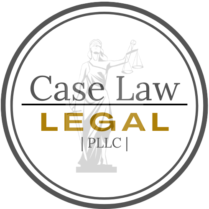Your rights, options, and steps to take after a judgment.
Frequently Asked Questions
1. What is a judgment, and why does it matter?
A judgment is a court decision that confirms you owe a debt. It gives creditors the legal right to take certain actions to collect, such as freezing bank accounts, placing liens on property, or seizing non-exempt assets.
2. Can creditors garnish my wages in Texas?
No, except for specific debts like child support, federal student loans, and taxes. Unlike many other states, Texas law offers strong protections for wages.
3. What assets can creditors take after a judgment?
Texas exemptions protect many of your assets, including:
- Homestead: Your primary residence.
- Personal Property: Up to $50,000 for individuals and $100,000 for families, including vehicles and household items.
- Tools of Trade: Essential tools or equipment for your profession.
However, non-exempt property like vacation homes or luxury items may be at risk.
4. How can creditors collect if they can’t garnish wages?
Creditors may pursue:
- Bank Account Levies: Freezing and withdrawing funds from non-exempt bank accounts.
- Property Liens: Preventing you from selling or refinancing real estate until the debt is resolved.
- Seizure of Non-Exempt Property: Taking non-protected assets, such as secondary vehicles.
5. Can I stop creditors from collecting after a judgment?
Yes. Here are your options:
- Negotiate a Settlement: Pay a reduced amount to settle the debt.
- File Exemption Claims: Protect your assets under Texas law.
- Bankruptcy: Filing can halt collection efforts immediately.
6. What is a writ of execution?
This is a court order that allows law enforcement to seize non-exempt property to satisfy a judgment. It’s usually a last resort for creditors.

7. What if my bank account is frozen?
Act fast! Contact an attorney immediately to:
- File a motion to release exempt funds.
- Negotiate with creditors to lift the freeze.
- Protect your remaining assets.
8. Can judgments be renewed in Texas?
Yes, judgments are valid for 10 years but can be renewed indefinitely before they expire, extending the time creditors can collect.
9. What if I don’t have any assets?
If all your income and property are exempt, you may be considered “judgment-proof.” While creditors cannot collect from you, the judgment remains on your record and could affect you if your financial situation changes.
10. How can I resolve a judgment without paying the full amount?
Many creditors are open to:
- Settlements: Offer a lump sum for less than the full amount.
- Payment Plans: Propose affordable monthly installments.
- Legal Challenges: Dispute the judgment if there were errors in the process.
Why Choose Us?
Navigating post-judgment collections can be complex. Our firm specializes in protecting your rights, negotiating favorable outcomes, and helping you regain financial peace of mind.
Contact us today for a consultation and personalized advice.

